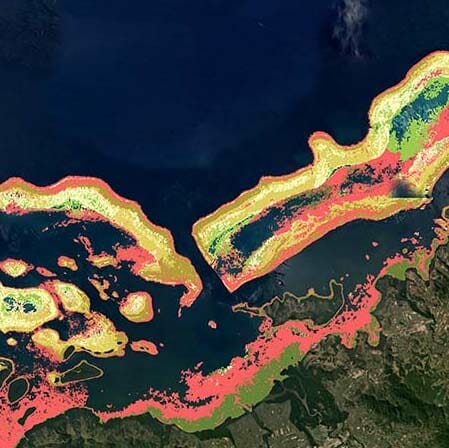
Arizona State University alongside atlas founding partners at Vulcan Inc., National Geographic, Planet and the University of Queensland presented to the world a complete projection of the planet’s coral ecosystems. The Allen Coral Atlas, named for the late Vulcan founder and celebrated philanthropist and entrepreneur Paul Allen, allows formal scientists, conservationists, policy makers and citizen scientists to fully explore the world’s coral reefs and see in real time how oceanic warming causes bleaching or allows for rehabilitation.
“Our biggest contribution in this achievement is that we have a uniform mapping of the entire coral reef biome,” said Greg Asner, managing director of the Atlas and director of ASU’s Center for Global Discovery and Conservation. “If you don’t know what you’ve got more uniformly, how would the U.N. ever play a real role? How would a government that has an archipelago with 500 islands make a uniform decision? (The atlas) lets us bring the playing field up to a level where decisions can be made at a bigger scale because so far decisions have been super localized.”